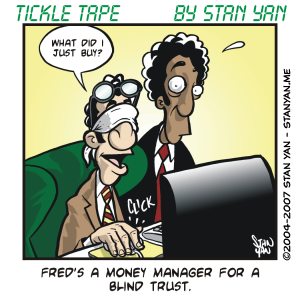High personal standards are the hallmark of success. Unless one strives to move beyond one’s comfort zone, he or she will never achieve greatness, and when it comes to trading, you aren’t going to make huge profits unless you set your sights high. That said, it’s imperative to consider what it means to set “high personal standards.” It’s not as obvious as it seems, especially for trading aspirations.
Depending on the context, setting extremely high personal standards, and meeting them, is sacrosanct. When one has a demanding job where even the best effort may not be quite good enough, it is necessary to comply with extremely high standards. Examples of such occupations include teachers who must ensure their students reach a prescribed level of mastery, a surgeon who must act flawlessly to save a patient’s life, or a pilot who must fly a jet airliner carefully to ensure passenger safety. (And of course, it is also useful to take a similar stance when trading.)
But there are times when one may set standards inappropriately, a little too high for a particular context. For example, some people are extreme perfectionists. They set standards higher than they can possibly achieve. A pathological example of this is found in people who experience frequent bouts of depression. These individuals set high standards they can’t meet, and feel like failures when they can’t reach them. This can happen to traders who set profit objectives beyond their skill level.
They may feel disappointed and helpless because they never meet their expectations. But usually, traders set unrealistically high standards in other ways. A common ailment is analysis-paralysis. Some traders have such high standards that they over-think and over-analyze market data before entering or exiting a trade. This often leads to hesitation and self-reproach and tends to undermine one’s trading strategy. Timing is everything and if you cannot enter and exit trades at the right time, your trading account will take big hits.
Another common example of overly high standards is illustrated in the belief that one must not miss an important trading opportunity. Some traders think they must find every opportunity to make money in the markets, and they fear they may miss even one trading opportunity. They find this possibility hard to accept. But seasoned traders will warn you that setting your sights on finding every opportunity will produce undue stress. You’ll be much more successful if you remind yourself that you just can’t expect to trade every possible opportunity.
So how does a trader set appropriately high personal standards for trading? One way is to maintain a high level of discipline. For example, outline and follow a very detailed trading plan. Define specific entry and exit strategies, and use appropriate risk management. Once you outline your plan, it is important to follow it.
Don’t let yourself stray from your plan. And don’t focus your immediate attention on how much profit you are making on each trade. Instead, concentrate on whether or not your profits are “justified” in that they are a direct result of following your trading plan. Remember, it’s better to have a “justified loss,” which results from showing proper discipline and following your plan, than an “unjustified win,” which happened because you abandoned your plan.
Setting high personal standards is a key prerequisite to success, but there are a right way and a wrong way to set these standards. Don’t be an extreme perfectionist. Execute your trading plan effortlessly, and make sure you stick with it. High levels of discipline are one of the best ways to set high standards for your trading, and they will help ensure you trade profitably and consistently.


